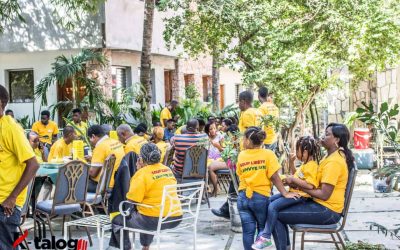À Fort-Jacques, planter les graines de la résistance : Un nouveau pacte haïtien pour la liberté

At Fort-Jacques, Planting the Seeds of Resistance: A New Haitian Pact for Freedom By Patrick Prézeau Stephenson (Le Français suit) On January 19, 2025, at Fort-Jacques, a symbolic and hopeful event brought Haitians and dignitaries together for the planting of a mapou tree and a royal palm, dedicated respectively to Jean-Jacques Dessalines and Alexandre Pétion. Organized by the STO Foundation in partnership with the Manifeste Appel du Lambi, this act marked a renewed commitment to the values of freedom, unity, and resistance that have shaped the Republic of Haiti. In his speech, Gregory Sicard, representing the Manifeste, highlighted Pétion's key role in forging the sacred union that led to victory over Napoleon's troops. Quoting historian Robert Price, he reminded the audience: "Pétion, whose shrewd politics regenerated Haiti, understood that the only way to achieve independence and defeat Napoleon's forces was to unite the two factions of Toussaint and Rigaud int...



